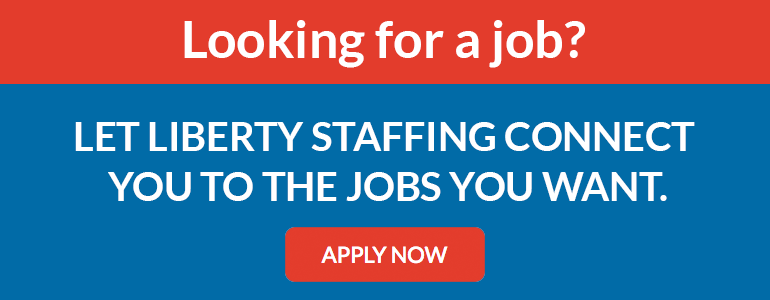 It’s no secret that today’s job market is more competitive than ever before. Hiring managers want to make sure they’re hiring the best of the best and getting the right fit for their business. To that end, they’re asking even tougher interview questions.
It’s no secret that today’s job market is more competitive than ever before. Hiring managers want to make sure they’re hiring the best of the best and getting the right fit for their business. To that end, they’re asking even tougher interview questions.
Some of these questions are tried and true favourites, like questions that ask you to consider your weaknesses or how you handled a conflict at a past workplace. Your responses to these questions help the interviewer assess you as an employee, but many candidates struggle in answering them.
Other questions are newer, but they might be just as tough. You may be asked to respond to a conflict case scenario, or to solve a problem on the spot to demonstrate your creative thinking.
At Liberty Staffing Services, some of our positions require an interview with the client company. Our clerical positions, in particular, most often require an interview. We want you to succeed in the interview process. Here are some tips to help you prepare for tough interview questions.
Look for Advice
You’re already taking this step, but you don’t need to stop here. You can search for sample answers to some classic questions, like “what is your biggest weakness?” You could also read up on advice from industry experts to see how they would answer these queries. Hiring managers may provide insight into what they look for in candidates’ answers.
You could also take a look at articles that showcase “bad” responses hiring experts have received. Knowing about common mistakes can save you from making the same blunders in your interview.
Be Honest, but Positive
Some candidates may feel compelled to be not quite honest in answering questions like “what’s your biggest career failure” or “how do you normally handle conflict?” If you know you don’t handle conflict well, you might be tempted not to tell a potential employer for fear it will impact their hiring decision.
Being honest in a job interview is important, and these questions aren’t meant to trip you up. Rather, the interviewer wants to see some self-awareness. Everyone has their weaknesses and shortcomings. The question is whether you’re aware of yours.
These sorts of questions aren’t designed to get you to criticize yourself either. Instead, try to stay positive and upbeat. Tell the interviewer about how you normally handle conflict. Then make some suggestions for how you could improve your approach.
Use the same tactic for other questions, such as those about gaps in your work history. Being honest is important, but a positive attitude will go a long way.
Let Go of Right and Wrong
As mentioned, many job candidates feel compelled to say what they think the interviewer wants to hear. If you’ve been busy searching for answers to specific questions, you’re probably seeking out the “right” answers.
You don’t want to give formulaic answers to these queries though, especially not ones that are designed to highlight your experiences. Instead, let go of the idea that there are truly “right” and “wrong” responses to interview questions.
There are replies you don’t want to offer, of course. For example, it’s not wise to criticize a recent company initiative, or rant about your former coworkers.
Still, it helps to focus less on what you think the interviewer wants to hear, and more on how your experience and skills (including the ones you want to improve) make you a good fit for the role.
This advice is also important when it comes to creative thinking questions. While there may be a “right” answer, a creative solution might still impress the interviewer.
Practice Makes Perfect
Before you go into any interview, you should give yourself a bit of practice time. Pick some of the toughest interview questions and rehearse your answers. You can practice by yourself in front of a mirror, or ask a friend or relative to interview you.
By practicing, you’ll be able to answer even the toughest questions when your interview arrives.
We wish you the best of luck! Contact us after your interview and let us know how it went.


